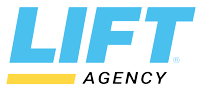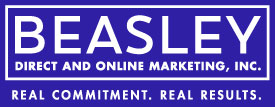Special Fall Pricing: Regularly, $1,450 is now 50% off—$725. Enroll here.
Revolutionize Your SEO Strategy for 2024
Unlock the full potential of SEO (search engine optimization), a strategic approach that aligns with Google and builds lasting value for your business.
This course has been completely rewritten based on what we learned from the testimony of Google VPs and engineers in the 2023 Google antitrust trial. Based on their explanation of how Google works, we can now better see how to improve the SEO for our websites and pages.
We will also show you how to leverage the new AI tools like ChatGPT and Bing Chat to optimize your keywords, meta-tags, and page content. Learn to craft messages that resonate with your audience while effectively integrating your USP, UVP, and CTA. Our course includes Andreas’s eBook on prompt crafting.
This is not just another SEO tutorial. It’s a deep dive into the nuances of SEO, tailored for businesses of all sizes. Whether you’re managing a small website or a multinational enterprise, our course adapts to your needs.
You can ask questions at any time. Experience hands-on learning with real-world case studies, interactive sessions, and practical exercises. Our comprehensive modules cover the latest SEO tools and methods, with handy checklists and pre- and post-SEO worksheets for tangible results.
You’ll walk away with a clear understanding of how Google works, how pages are ranked, and how you can use that for your company.
What You’ll Learn:
- Google’s Ranking Secrets: Uncover how Google evaluates and ranks pages. Learn what works, what to avoid, and how to align your pages with Google’s criteria.
- Keyword Mastery: Discover methods to find the most effective keywords and spoken queries tailor-made for your content and target audience.
- On-Page SEO Excellence: Learn techniques to enhance user experience and engagement on your pages.
- Technical SEO Insights: Identify and fix technical issues that hamper your page rankings.
- Off-Page SEO Strategies: Additional tactics to bolster your page’s position in search results.
- Speed Optimization: Understand how to accelerate your page loading times, a key factor preferred by Google.
Each workshop in the four-module series is packed with examples, tips, and actionable insights. You’ll receive dozens of tactics with codes, checklists, and notes for immediate application. These skills extend beyond SEO to digital advertising, social media, and content marketing. Whether you do the work yourself or manage others, these workshops will elevate your SEO proficiency.
Don’t miss out on this opportunity to elevate your SEO game for 2024. Enroll now and start transforming your SEO strategies into success stories.
Can’t attend the live workshop? No problem! Our workshops are recorded, and we’ll send you the recording, workbook, and any supplementary materials. You can send emails with your follow-up questions.
Module 1, Keyword Research.
Description:
The first session starts by looking at how Google selects which pages will appear in search results. You’ll understand how Google sorts and ranks websites and pages. This is entirely new material, based on what we learned from Google’s internal documents and testimony by Google CEO and VPs in the US Department of Justice vs. Google antitrust trial that was held from October to November 2023 in Washington, D.C. We add what it means and how to adapt your SEO work to Google’s systems.
Keyword Research, which is the foundation of SEO. You’ll see how to use Google tools to find the keywords your audience uses to search for your company, products, and services on desktop, mobile, and voice search. This includes how to find the keywords that bring visitors to your competitors. Then, use these questions, keywords, and phrases to write your meta-tags (TITLE tags and DESCRIPTION tags), page headings, body text, image captions, links, and more. You also use keywords for pages, ads, social posts, content marketing, and to make videos.
You’ll also see how to convert all keywords to lowercase in one step, sort keywords into categories, make permutations of the best keywords, and quickly translate keywords into other languages.
Key Takeaways:
In this class you’ll learn:
- Learn how Google reviews and selects websites. For any topic, there may be millions of pages. How does Google select ten to twenty thousand of those pages and narrow that down to a few hundred, which ends up as a few dozen pages? What do Google’s 16,000 Quality Reviewers look for? What are the red flags for Google? We’ll cover this, step by step, based on Google’s internal documents and court testimony. You’ll have clear guidelines for improving your pages to match Google’s goals.
- Keyword Research: We look at free tools to find thousands of keywords, including your competitors’ keywords. You’ll also see how to find your audience’s questions when they search.
- This includes how to use advanced concepts such as Latent Semantic Indexing (LSI) which you can use to write better pages that align with Google’s criteria quickly.
- You’ll see how to use AI to sort keywords into categories quickly, use that to create additional pages, find more keywords, sort keywords by the target audience, interests, intent, and seasonality, create word clouds, create mind maps, translate your keywords into sixty-six languages, and more.
- You can also use tools to find your competitors’ keywords and understand their pages, which gives you ideas for your pages.
- Each section includes a checklist for your work.
- We also give you spreadsheets for managing your keywords.
Module 2, Optimizing On-page SEO and Technical SEO.
Description:
Dive into the world of technical SEO with our second workshop, where we split our focus into two crucial parts: on-page SEO and technical SEO.
On-page SEO is all about enhancing what your visitors see on your website and pages. You directly boost your search rankings by improving site architecture, page design, grammar, text, and visuals. We’ll guide you on utilizing AI tools to elevate your content and image quality, making your site more appealing to users and search engines.
Next, we delve into the intricacies of technical SEO. This involves tweaking your site’s HTML code to ensure search engines categorize your pages correctly. We cover the essentials of editing HTML meta-tags, page headings, body text, ALT tags, and link texts. To simplify this process, you’ll receive a handy spreadsheet that helps keep your meta-tags within Google’s character limits. Plus, we’ll demonstrate effective methods to test and optimize your meta-tags.
You’ll also learn to use analytics to strategically select pages for SEO enhancement and discover advanced techniques for optimizing images, including editing hidden text. The workshop doesn’t stop there; we’ll explore other technical areas such as canonical tags, HRefLang tags, handling 404-error pages, implementing 301-Redirects, repairing broken internal links, and creating XML sitemaps for pages and images.
Our approach is straightforward and user-friendly. We provide clear, step-by-step instructions with practical examples that you can easily replicate and adapt. This workshop will empower you with the knowledge and tools.
Key Takeaways:
In this class you’ll learn:
- What does Google consider a good page? You’ll see how AI can compare your pages with Google’s ideas.
- How to write better meta-tags and headings, tools to suggest and optimize all the meta-tags on your site, and a spreadsheet to manage meta-tags.
- Tools to see the meta-tags on your site (and your competitors’ sites).
- SEO includes the text on your page, such as headings, sub-headings, body text, and links.
- How to do SEO for images, including ALT tags and the hidden meta-data.
- Technical issues include canonical tags and HRefLang tags, 404-error pages, 301-Redirects, how to find and fix broken internal links, and XML sitemaps for pages and images.
- How to quickly create structured data for your pages.
- Lots of code examples to copy, edit, paste, and use.
- Checklists for on-page SEO and technical SEO.
Module 3, Off-page SEO, Google Updates, Reporting SEO, and More.
Description:
Our third workshop looks at off-page SEO, focusing on strategies to enhance your online presence and visibility beyond your website. Off-page SEO is crucial in attracting more visitors and boosting your site’s credibility. We’ll navigate through various techniques, including effective link building, social media engagement, securing links on news sites, link directory registrations, optimizing your Google My Business profile, Wikipedia contributions, and more. These tactics are key to expanding your digital footprint and driving increased traffic to your site.
But that’s not all. This session also delves into the essentials of SEO reporting. Learn how to create insightful SEO reports and analyze visitor data, page performance, rankings, and keywords. We’ll guide you through justifying the ROI of your SEO efforts, equipping you with the knowledge to demonstrate the value of your work.
Additionally, we provide an overview of the most common SEO topics and metrics essential for anyone in the field. We’ll discuss establishing an effective SEO helpdesk to support your organization’s SEO initiatives further, ensuring ongoing support and optimization.
We wrap up the session with a comprehensive SEO tools and resources list. This curated collection will help you stay updated with the latest trends and best practices in SEO and digital marketing, ensuring you remain at the forefront of the industry.”
Key Takeaways:
In this class you’ll learn:
- Off-page SEO covers the changes you can make outside your website that affect your ranking.
- How to build quality inbound links.
- How to check for links from your site to bad sites.
- How to block bad (toxic) incoming links.
- Why you need to show experts on your site, how to find them, and how to cite them on your pages.
- How to place your press releases on 100+ media sites, magazines, and newspapers.
- If your organization has dozens (or hundreds) of locations, there’s a way to list all of them on Google.
- Off-page SEO includes social media. You’ll see how to use ChatGPT to write hundreds of audience-specific social media posts in minutes, complete with the tone, emoji, and CTAs.
- How to get your organization in the Knowledge Box at the top of Google.
- How to use web analytics to get data and create reports for SEO.
- How to justify the cost of SEO work.
- List of resources for information and help in SEO.
Join us to equip yourself with the cutting-edge techniques that will define the next digital marketing era. Sign up for this course today.
Module 4, Page Speed Optimization.
Description:
In our fourth workshop, we focus on Google’s prioritization of page loading speed in its ranking algorithm. Speed is critical in search rankings, with faster pages often outranking their slower counterparts under similar conditions. This workshop will equip you with a comprehensive understanding of best practices for enhancing website speed.
We provide clear, real-world examples and a series of practical, step-by-step tactics tailored to your organization’s website. Implementing these strategies is crucial to avoid significant drops in traffic due to slow loading times.
A key part of the workshop is learning to effectively measure your website’s performance against Google’s speed standards. We’ll guide you through the tools and techniques for this assessment, ensuring you have a clear picture of your site’s speed profile.
Additionally, the workshop includes a wealth of resources: examples, links, and customizable code snippets. These materials are designed for easy application, allowing you to immediately implement changes and see tangible improvements in your website’s loading speed.
We cover the parts of speed optimization:
- Why optimize for speed?
- How to measure your page’s speed.
- How to reduce the kilobyte size of text and images so pages open faster.
Why Optimize for the Speed of Pages?
Whenever Google rolls out a core update such as mobile-first indexing, hundreds of thousands of websites suddenly take a nosedive in ranking and traffic—and scramble to triage the problem. You can prevent this from happening to your website immediately learning about Google’s updates and improving your website’s page speed.
Key Takeaways:
In this class you’ll learn:
- Should your website be designed for desktop or mobile? See traffic results and share them with your team to mobilize design changes.
- Most of your visitors have a slower connection than they expect. Shared WIFI connections and VPNs impact the page speed. You can throttle your browser to experience how your pages open for your visitors.
- Google’s new CWV speed metrics include FCP, LCP, CLS, and FID. What do these mean, and how to see the scores?
- Examples of good and bad web design: placement of buttons, tracking tags, content, and more.
- How to use your Google Analytics to see page speed and decide which pages to optimize first.
- How to reduce the amount of text on your site.
- How to reduce the kilobyte weight of images on your site. The impact of image formats. Which images to compress? Comparison of results when compressing images. New image formats. Size of webP format, GIFs, SVG, carousels, and video. How to use different sizes of the same image.
- Examples of code that you can add to your web pages to accelerate images.
- How to use segmentation in Google Analytics to see your traffic and page speed.
- Dozens of practical tips and ideas to improve the speed of your pages.
How to Convince Your Boss Why You Should Take this Class:
Completely updated for 2024, this course offers fresh insights into Google Search’s workings, especially in light of testimony and documents from the 2023 Google antitrust trial. We emphasize using AI tools to better understand your audience and create web pages that resonate with their interests. This course for every company size, from SMB to enterprise-level SEO, aimed at boosting traffic, enhancing brand awareness, and increasing sales and conversions.
SEO isn’t just about visibility in search engines; its concepts can also be applied to digital advertising across platforms like Google Ads, Facebook, and LinkedIn, as well as media posts, content marketing, and videos to attract more visits, leads, and sales.
Our course is particularly valuable for internal teams who possess an intimate understanding of your organization’s goals, products, and services. Unlike external agencies or consultants, internal teams can communicate these aspects more effectively. This course empowers your internal team to:
- Implement advanced SEO strategies tailored to your business’s unique needs.
- Use AI and data analytics to create content that aligns with your audience’s preferences.
- Integrate SEO techniques across digital marketing channels for a cohesive online presence.
- Measure and analyze the effectiveness of your SEO efforts to continually refine your approach.
Equipping your team with these skills enhances online visibility and ensures a consistent and effective digital marketing strategy across all platforms.”
The Presentations: Live or On-Demand
- The presentation is both live and on-demand (recorded).
- The live presentations let you ask your questions and get answers immediately.
- Take the recorded presentations if the schedule doesn’t fit your calendar.
- Step-by-step instructions in numbered lists complete with links to do this yourself.
- The course includes illustrations and examples you can copy, edit, and use in your work.
- You’re welcome to ask follow-up questions by email.
Download Material:
- Recorded video of the presentation with slides and audio.
- All PowerPoint presentations as PDFs.
- Step-by-step instructions in numbered lists with links and checklists.
- Supplementary materials, including spreadsheets for managing keywords, sorting keywords, and translating keywords, and eBooks.
- The Google Quality Rater Manual, Google’s internal training manual for their 15,000 reviewers.
- LinkedIn Profile Optimization eBook by Andreas Ramos.
- Prompt Crafting for Digital Marketing eBook by Andreas Ramos.
Who is the Course for?
Marketing managers, digital marketing managers, search marketing managers, webmasters, creative directors, agency account directors, and media planners in B2C and B2B companies, government, and non-profits.
The Presenter:
Andreas Ramos

Andreas Ramos teaches courses at the DMAnc.org in digital marketing with AI, SEO, digital advertising, Google Analytics 4.0, and LinkedIn profile optimization.
- Adjunct Professor teaching university-level AI-powered digital marketing at Omnes Education, CSTU.edu, and the DMAnc.org.
- Author of 22+ books on digital marketing, including five Amazon Best Sellers. Books published by McGraw-Hill, Tsinghua University Press, and others in five languages.
- Digital marketing since 1995. Former director of the digital agency at Acxiom, where he led digital marketing projects for global banks, airlines, hotels, and more. Director of Global SEO at Cisco, where he worked in 44 languages in 84 countries. He was CMO of a Silicon Valley startup and is currently an advisor to two AI startups. His current clients include Stanford and Harvard. He has worked with Cigna, ATT, Chase, Citibank Brazil, Bain, SUN, Brio Technology, Oracle, SGI, NTT, and smaller companies.
- Keynote speaker at conferences in NYC, Chicago, San Francisco, San Jose, Beijing, Shanghai, Copenhagen, Vienna, Karachi, Stanford, and other cities.
- Member of the association for people who work in SEO at Silicon Valley Fortune 500s. Noted Most Valuable Contributor (2014).
- In Palo Alto since 1992.
- Master’s degree from Universität Heidelberg, Germany.
- Website is https://andreas.com (online since 1994).
- Social media: LinkedIn https://linkedin.com/in/andreasramos/ and X (formerly Twitter) https://twitter.com/Andreas_Ramos.
- Contact Andreas at [email protected].
Workshop dates and times:
FALL
Module 1: Keyword Research.
Friday, Sep 20, 2024
from 12:00 p.m. to 2:00 p.m. PDT.
Module 2: On-page SEO and Technical SEO.
Friday, Sep 27, 2024
from 12:00 p.m. to 2:00 p.m. PDT.
Module 3: Off-page SEO, Google Updates, Reporting SEO.
Friday, Oct 4, 2024
from 12:00 p.m. to 2:00 p.m. PDT.
Module 4: Page Optimization for Speed.
Friday, Oct 18, 2024
from 12:00 p.m. to 2:00 p.m. PDT.





